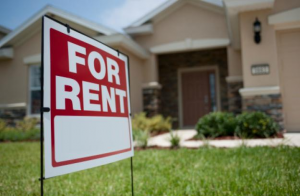
But look before you leap. It’s possible, but not always an easy approach to obtaining a home. Know what is at stake before signing on the dotted line.
There are different variations of the rent-to-own option, but basically it involves an agreement between a potential buyer and a landlord/owner that is expected to lead to a purchase. Such agreements usually are for two to three years. During this time, the owner sets aside a part of each month’s rent into an escrow account. If payments are made as agreed, the money in the escrow account can be used at the end of the lease time as a down payment and the purchase proceeds from there as usual.
In another version, the seller the two parties would agree to a lease for a set time with no portion of the “rent” going into an escrow account and the seller offering a discounted price at the end of the lease. This obviously would be advantageous to a seller who is under pressure.
Both parties to such an agreement have potential benefits. The renter is forced into saving for a down payment and the owner gets a monthly return on his property without waiting for a sale.
Yael Ishakis, a senior loan officer at First Meridien Mortgage in Brooklyn, N.Y., offers a for-instance: A client put $5,000 down on a home and signed a lease for $1,800 monthly rent, of which $600 per month went into an escrow account. On the regular market, the home would have rented for $1,600 per month, so the seller also was contributing to the agreement. At the end of the lease period, the client had $14,400 in the escrow. With the initial $5,000 down payment, plus some $10,000 the buyers had managed to save, they had about $30,000 for a down payment.
The pitfall may come if, in the end, the potential buyers are not able to complete the agreement. They then lose the escrow money, and possibly paid more in rent than they might have done otherwise.
Those owners willing to enter into rent-to-buy agreements usually are motivated by a sluggish market or have had their property on the market for a long time. In areas where the real estate market is thriving, there are likely to be fewer opportunities for renting with intent to buy.
Sometimes a potential buyer can work a deal with someone who is selling, but most often the seller will advertise his intentions. Some agencies specialize in rent-to-own properties. RentMACK is one such agency and there may be others you could find by researching in your own neighborhood.
Be forewarned that at the end of the rental period, you still must qualify as a purchaser. Bad credit will still be a problem. Rent payments are not often considered in building credit. Learn what your credit rating is and what is likely to be required when you try to finance. Try to improve your credit by using a secured or regular credit card, ideally paying it off each month. Or, if possible, get a car loan and make payments faithfully. If you can’t arrange financing, you may lose the escrow money. Take advantage of the lease time to prepare for the purchase. Be sure you understand at the outset what the full down payment will be and work toward it.
Get expert advice. There are dangers on both side of rent-to-own arrangements and often, after looking at the possibilities, people decide not to pursue this approach to home buying. State laws surrounding rent-to-own vary. Be sure you know what they are where you live.
From the seller’s viewpoint, if the potential buyer defaults, but there is money is escrow, a court could rule that the tenant has a property interest.
Involving attorneys on both sides is a good idea. Having legal advice on the proposed agreement may save difficulties if things don’t go as expected.
